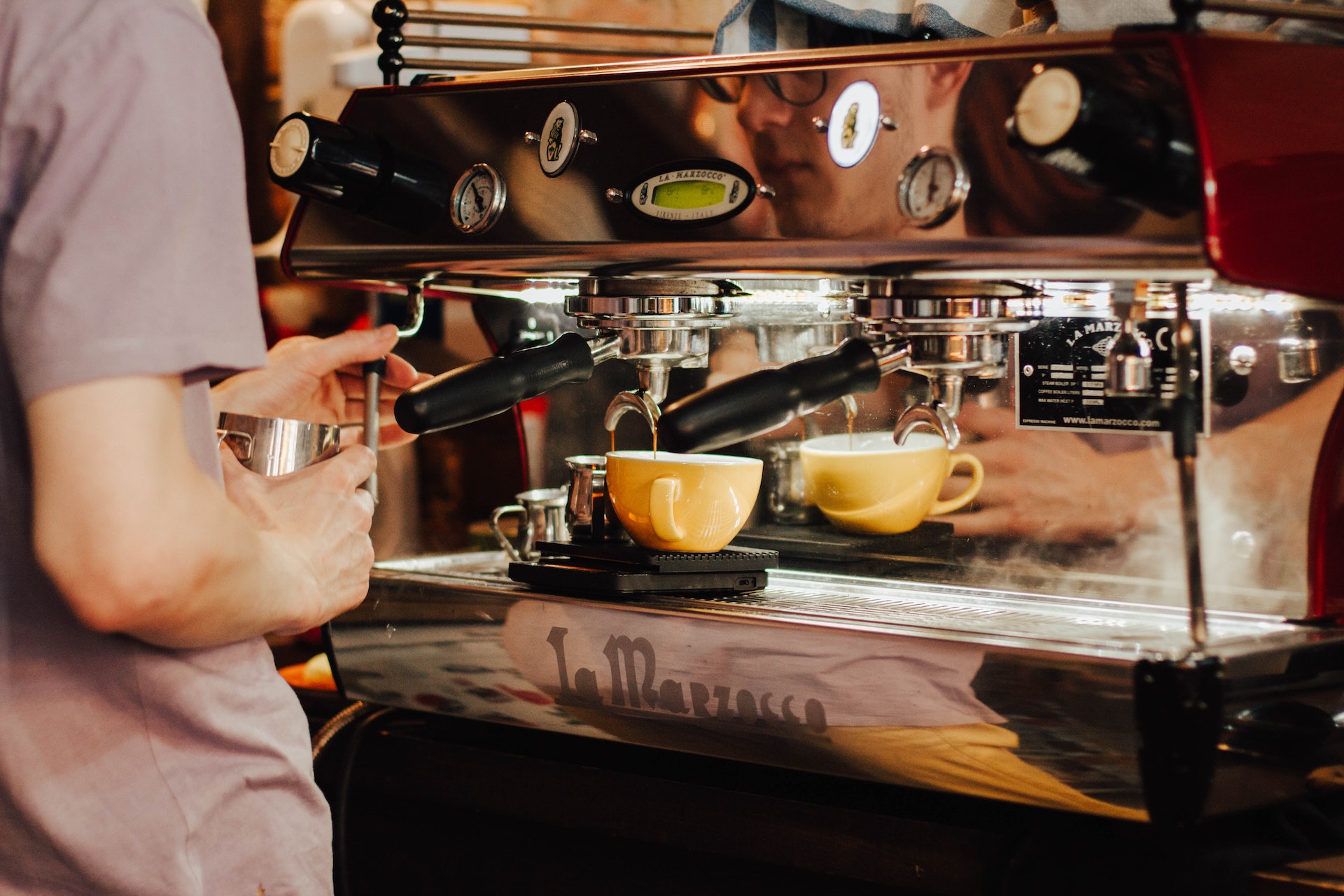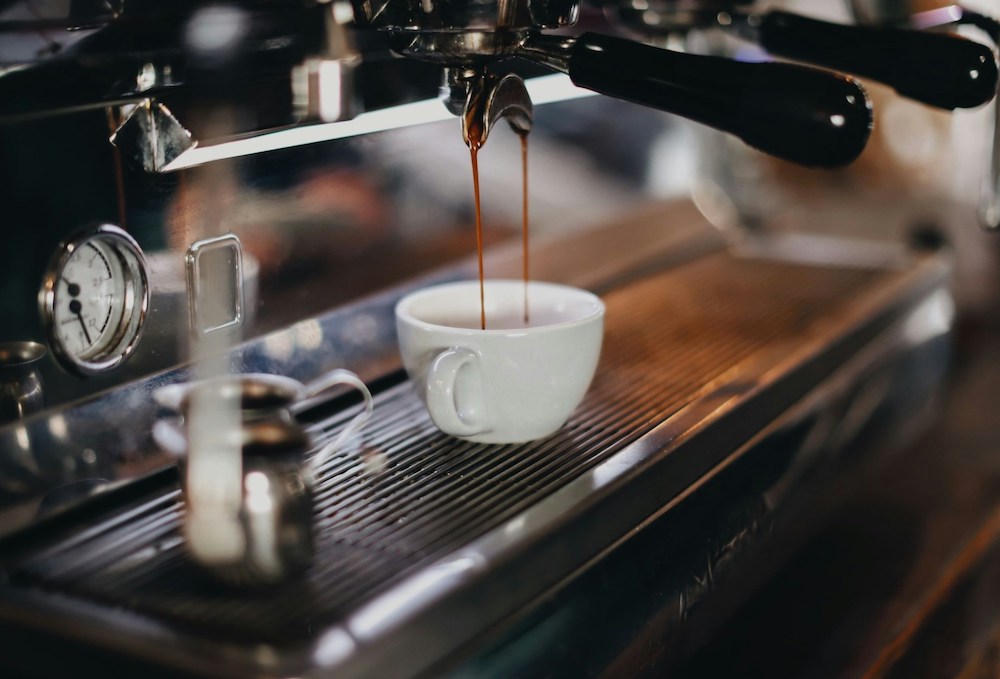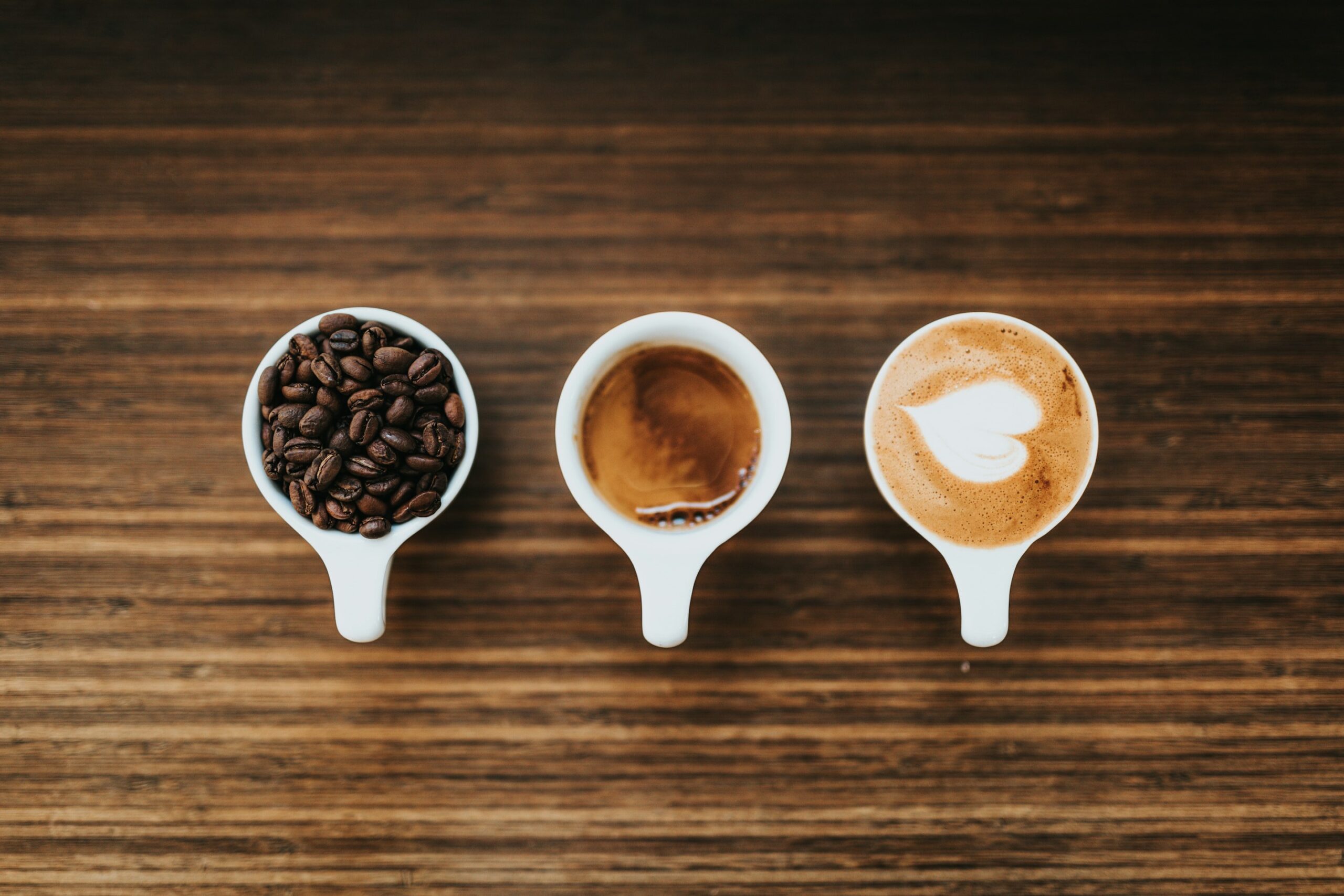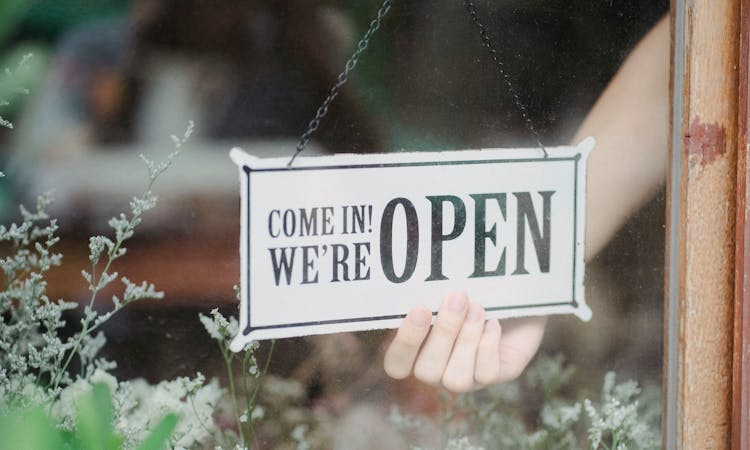When you first step through the doors of a cafe, you’ll quickly get an idea of what the place is like depending on the quality of the coffee machine. The beating heart of every cafe, the coffee machine is ultimately what shapes the experience for customers, from aroma, taste and strength.
A slick, well-maintained coffee machine is vital for enhancing both the performance and reception of your cafe.
When you buy a coffee shop, you'll soon find out how critical a quality coffee machine is to keep the business running. It can make or break a business. But with such a wide range of models available, we understand why the purchasing process can feel a little overwhelming, especially if you're new to the industry.
Rest assured, we have the answers to everything you could possibly want to know when it comes to selecting a machine to make your cafe flourish.
What is the Best Coffee Machine for a Coffee Shop?
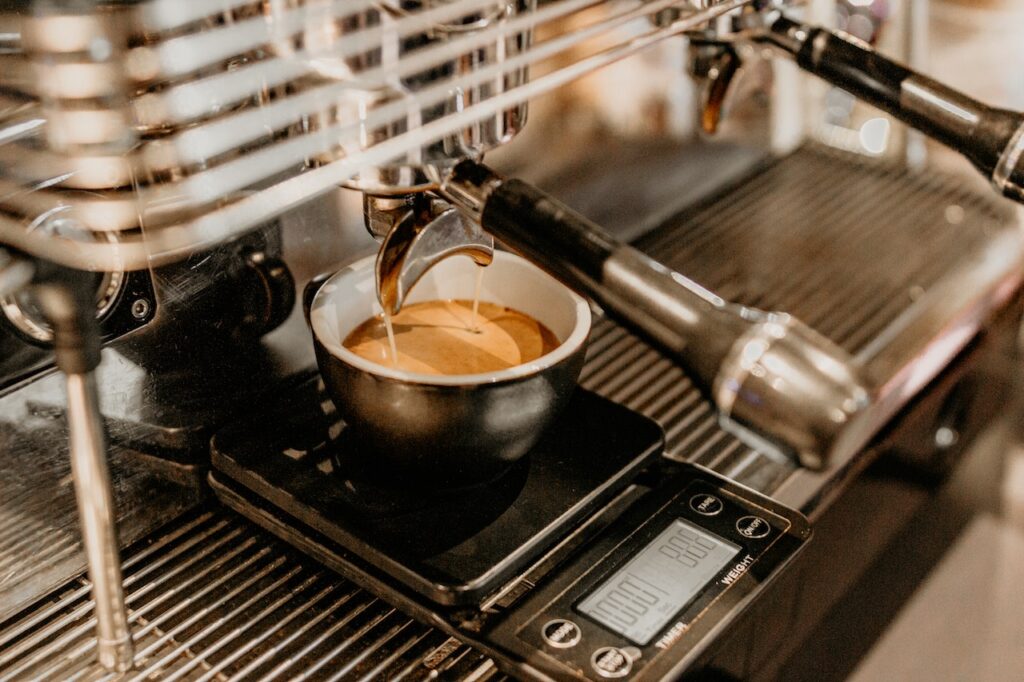
First off, you need to ask yourself, “what type of business am I operating?”. Every coffee shop is different, so there are a lot of variables to consider when determining what machine will be the right fit for your counters, such as:
- Ease-of-use
- Size of outlet and machine
- Expense
- Knowledge required
- Aesthetic
For many shop owners, it's a matter of keeping costs low; for some, it’s about making life easier for your baristas, and for others, it’s all about presentation. Maintaining your coffee machine is also incredibly important, so consider how this will work when choosing your equipment.
Remember the golden rule: a coffee machine can make or break your business, so don’t skimp on expenses for a cheaper and less effective option. All these elements are important to varying degrees, so we’ll give you the lowdown on getting the right balance.
Pay Attention to Cafe Trends
Certain machines are popular for a reason. Keeping an eye on coffee shop trends will give you some direction; once you survey what equipment the competition uses, you can get a good idea of where to start.
It’s not just about functionality but appearance too. A machine that isn’t properly cared for or looks like the average kit you’d find in someone’s kitchen will reflect poorly on your shop. Even if it might be tucked away behind a till and friendly baristas, all it takes is a cursory glance for customers to get a sense of what the place is like.
Make sure you strike the best first impression possible with the latest technology available on the market and keep systems spick-and-span.
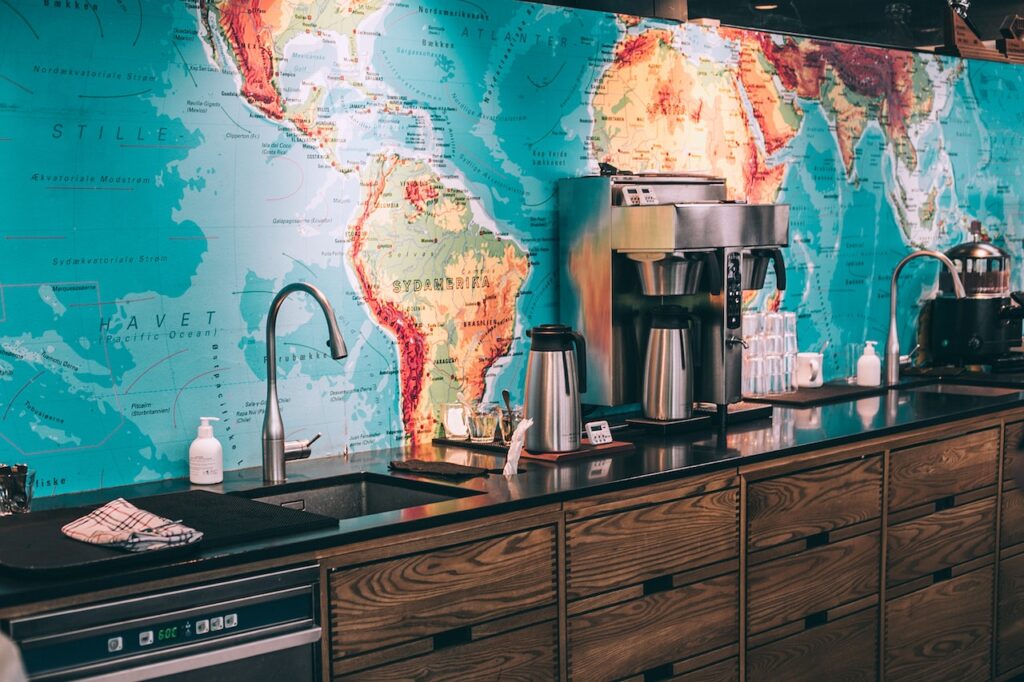
What is the Best Coffee Machine for a Bigger Cafe?
If you have plenty of space or expect a lot of footfall, consider purchasing bigger (or multiple) espresso machines to meet higher demand levels.
What is the Best Coffee Machine for a Small Cafe?
Conversely, if your shop is located in a less busy area, it may be wise to save on costs and purchase fewer or smaller models.
Depending on the number of shots drawn daily, you may need to adjust over the course of your business journey. We suggest starting with fewer machines to save on start-up costs, no matter the size, instead of buying multiple expensive appliances you may not even need to use. Then if your coffee shop is more popular than expected, it’s time to upscale!
How Much is a Coffee Machine for a Cafe?
Coffee machines can cost anywhere from £1000 to £40000. Of course, these prices will vary depending on what you want to prioritise for your shop, but we provide an average of costs you can expect below.
- For smaller cafes: you can probably set your budget to around £1500-£5000.
- For an average-sized cafe: £3000-£10,000 is ideal.
- For larger cafes, budgets or cafes with a more established name: we suggest starting at £10,000 for a good quality commercial-grade machine that can handle a large volume of shots.
Can An Esquires Coffee Franchise Help?
Consumers across the UK love the Esquires cafe experience, so we have a good grasp on what equipment is necessary to make your business successful.
Although franchising doesn’t mean equipment will be provided for you, you can avoid some of the costlier aspects of this process and gain some guidance as we will provide specifications for equipment, fixtures and leasehold improvements.
Get a leg up on the competition by franchising with Esquires Coffee. Once you partner with Esquires, your business won’t suffer from a lack of brand awareness as you’ll have access to our brand name.
In addition, you can use our recipes, trademarks, decor and operational systems, giving you a bit more room in your budget for a high-quality and efficient machine by saving on unnecessary expenses.
What Types of Coffee Machines Are There?
The machine you're bound to find in any coffee shop is the classic espresso machine. A word of warning, commercially produced espresso machines aren’t like the ones you get at home. They generally need a bit of expertise to operate and come in quite a few varieties.
But don’t be intimidated by steep prices or learning curves; as long as the quality reflects the price, you’re in the clear, and soon enough, using even the most complex machines will become second nature.
Meet Demand with Automatic Espresso Machines
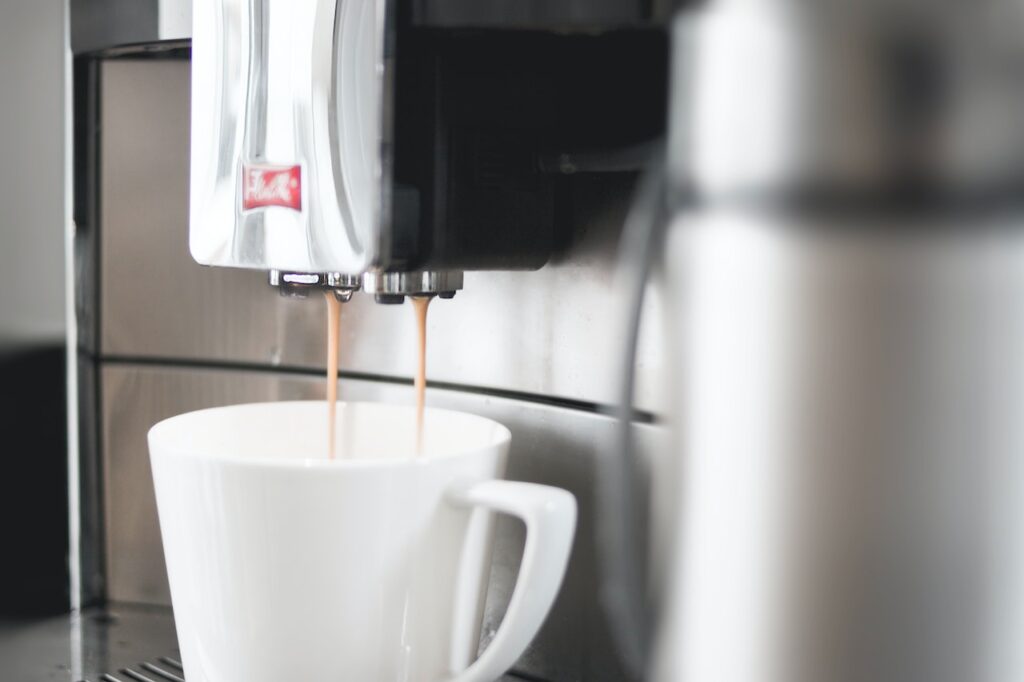
So you have customers flocking to your shop, crowding the counters and forming long lines for your beverages. Ideal, right? Well, it can be, so long as you can keep up with demand.
A fully automated machine may be just what you need, excellent for speed, user-friendliness and consistency.
Automatic espresso machines are an ultra convenient choice for first-time coffee shop owners. Employees won’t need much training; provided the settings are programmed correctly, baristas can easily create drinks at the press of a button! Most models come with thorough instructions, and once you get the hang of it, you will quickly appreciate how incredibly simple it is to operate.
The only downsides are that, depending on the model you buy, there are fewer preparation options. More experienced baristas may be able to adjust the strength, size, and aroma to match the specific tastes of individual customers, but that will likely be harder for employees who are inexperienced or less tech savvy.
Still, they can drastically cut down waiting times for customers, which is excellent for those who want a cup of joe to go! Even better, customers can expect the same quality every single time no matter the level of experience of the barista, as automatic machinery isn’t subject to human error like manually operated appliances are.
Class it Up with a Manual Espresso Machine
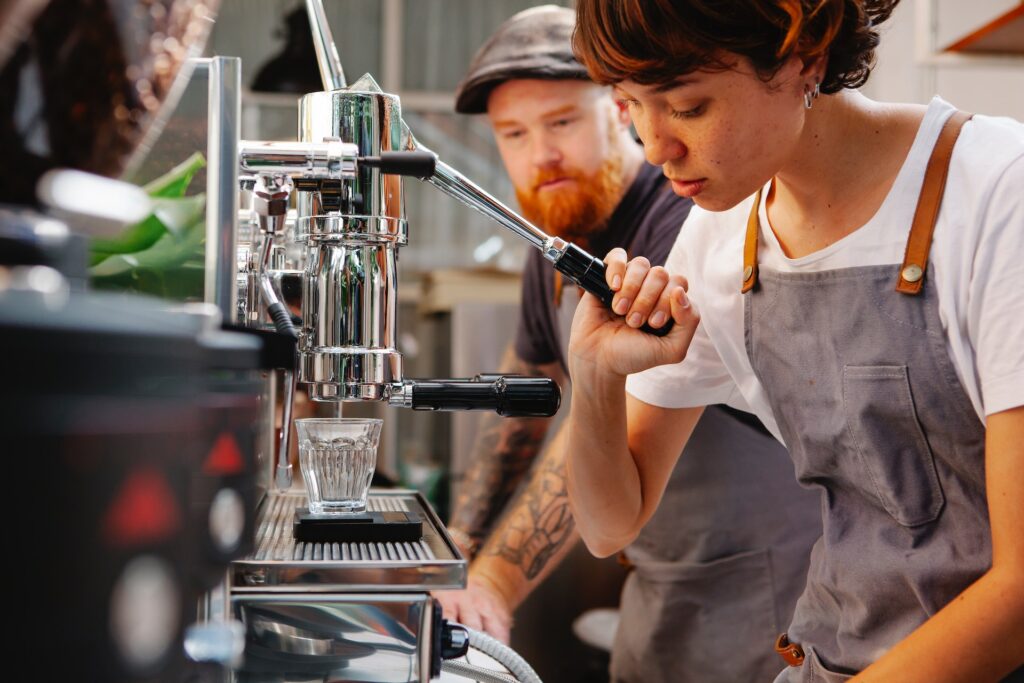
If you want to prioritise a classic aesthetic for your cafe, consider adding a touch of elegance with a vintage manual espresso machine. As the name indicates, a manual espresso machine is operated manually, and every draw of espresso is controlled by the strength of the person who pulls the levers.
Not only will this machine recall a bygone era of traditional coffee shops for interior decor, but opting for manual over automatic machinery is perfect for demonstrating expertise and confidence to customers, allowing experienced baristas more control over the drinks they create.
Bespoke beverages sound ideal, but as you can imagine, there’s a lot of room for error for less experienced employees, not to mention how time-consuming this method is. Pulling levers all day is more effort than you may think! You may not be reaping the benefits if some employees happen to have weak arm muscles - or if you’re looking to train staff quickly.
Still, this option may just be ideal for business owners who want to commit to a niche style or for employees who have more time to cultivate the perfect drink.
Find a Balance with a Bean-to-Cup Machine
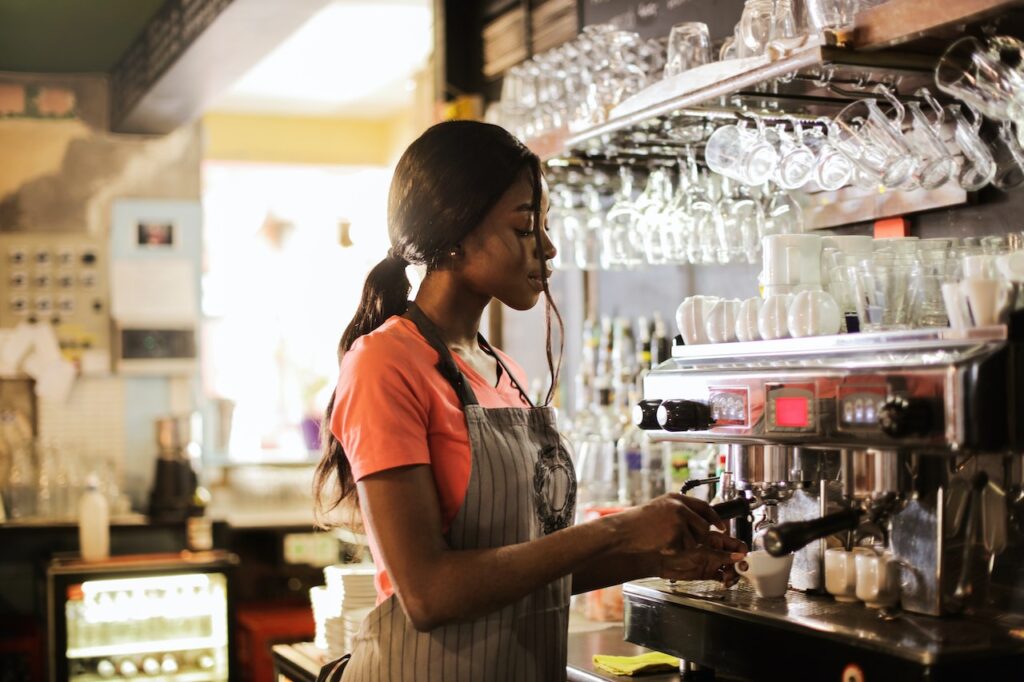
A Bean-to-Cup machine, also known as a semi-automatic machine, represents the best of both worlds! The pump mechanism allows more flexibility than a fully automatic machine as baristas remain entirely in control of the water volume without having to pull levers like with manually operated machines. The only manual aspect of this appliance involves pressing buttons for as long as is needed.
Keep in mind, there are still potential drawbacks to a partially automated machine. For instance, it can be too time consuming to keep up with the speeds of busier outlets and may still require extended training for new employees.
But if you’re struggling to choose between manual and automatic, a bean-to-cup system is the happy medium your business needs.
We hope this will help you get a head start in your coffee shop journey. Please do not hesitate to contact us if you have any further questions on equipment or franchising with Esquires Coffee.
